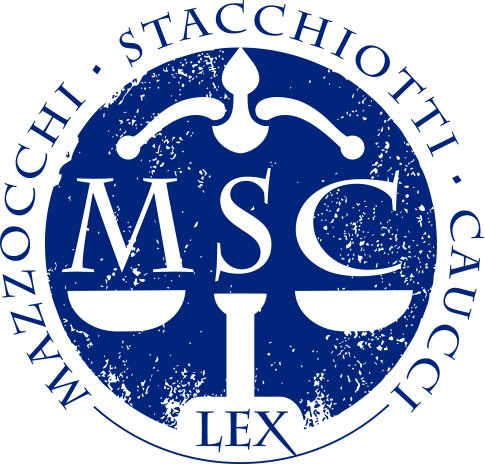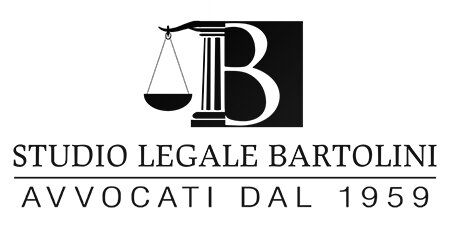Best Labor Law Lawyers in Ancona
Share your needs with us, get contacted by law firms.
Free. Takes 2 min.
List of the best lawyers in Ancona, Italy
About Labor Law in Ancona, Italy
Labor law in Ancona, Italy, is governed by a combination of national Italian labor laws and regional regulations that aim to protect workers' rights and maintain fair labor practices. The city of Ancona, being a prominent port and industrial hub, has a diverse workforce that includes a range of sectors such as shipping, manufacturing, and services. The labor laws address topics such as employment contracts, workplace safety, working hours, remuneration, anti-discrimination, and the resolution of employment disputes.
Why You May Need a Lawyer
Navigating labor law can be complex, and individuals may require legal assistance in several situations. Common scenarios include disputes over employment contracts, unfair dismissals, workplace discrimination or harassment, wage and hour disputes, and issues related to occupational health and safety. Additionally, both employers and employees often need legal advice to ensure compliance with local and national labor laws. A lawyer specializing in labor law can provide valuable guidance and representation in these matters.
Local Laws Overview
The local labor laws in Ancona align with national laws but also reflect regional economic and social factors. Key aspects include the following:
Employment Contracts: Contracts must comply with Italian statutory requirements, and any clauses contrary to national labor rights are deemed null and void.
Working Hours and Overtime: Standard working hours are typically 40 per week, with specific regulations governing overtime pay.
Minimum Wage and Salaries: While the national minimum wage is established, Ancona also recognizes sector-specific agreements that may stipulate higher wages.
Health and Safety Regulations: Employers must adhere to rigorous health and safety standards to create safe working environments, in line with both national and EU directives.
Dispute Resolution: Labor disputes can be resolved through conciliation procedures or litigation in labor courts, where mediation is also encouraged.
Frequently Asked Questions
What are my rights if I'm unfairly dismissed from my job in Ancona?
If you believe you have been unfairly dismissed, you have the right to contest the dismissal through the labor courts. You may be entitled to reinstatement or compensation, depending on the circumstances.
How are working hours regulated?
Italian labor law sets the maximum working week at 40 hours, with overtime allowed under specific conditions. Employers must pay overtime premiums as per collective agreements or statutory provisions.
What should I do if I experience workplace discrimination?
If you face discrimination at work, it is crucial to document the incidents and seek legal advice. A lawyer can help you file a complaint with the appropriate authorities or pursue litigation if necessary.
Are there specific laws for part-time workers in Ancona?
Yes, part-time workers in Ancona are protected under the same labor laws that apply to full-time workers, with specific provisions concerning their employment contracts and rights.
Can I negotiate my employment contract?
Yes, employees have the right to negotiate their employment contracts. It’s advisable to seek legal advice to ensure that the contract complies with labor laws and includes fair terms.
What steps should I take if my employer doesn’t pay my wages?
First, try to resolve the issue directly with your employer. If that fails, you can file a claim for unpaid wages with the labor inspectorate or pursue litigation with the help of a lawyer.
How does maternity leave work in Ancona?
Italian law provides for mandatory maternity leave, typically 5 months at 80% of salary. Additional local provisions may apply, so check with your employer or legal adviser for details.
What are the safety standards employers must follow?
Employers must comply with Italian and EU safety regulations, conducting regular risk assessments and ensuring all safety equipment and protocols are up to date.
Can I join a labor union in Ancona?
Yes, employees have the right to join labor unions. Trade unions are active in representing members' interests in various sectors across Ancona.
What legal options do I have if my workplace rights are violated?
If your rights are violated, you can file a complaint with the labor inspectorate or seek legal recourse in labor courts. It's advisable to consult a lawyer to understand your options.
Additional Resources
For further assistance, individuals can contact INPS (National Institute for Social Security) for employment and social protection guidance. The Italian Ministry of Labor and the local office of Confartigianato in Ancona also provide valuable resources. Additionally, trade unions such as CGIL (Italian General Confederation of Labour) offer support to workers in need of advice or representation.
Next Steps
If you require legal assistance in labor law, consider consulting with a lawyer who specializes in this field. Start by gathering relevant documents and information related to your case. You can contact the local bar association in Ancona for a list of qualified labor law attorneys. Remember to prepare any questions you might have in advance to make the most of your legal consultation.
Lawzana helps you find the best lawyers and law firms in Ancona through a curated and pre-screened list of qualified legal professionals. Our platform offers rankings and detailed profiles of attorneys and law firms, allowing you to compare based on practice areas, including Labor Law, experience, and client feedback.
Each profile includes a description of the firm's areas of practice, client reviews, team members and partners, year of establishment, spoken languages, office locations, contact information, social media presence, and any published articles or resources. Most firms on our platform speak English and are experienced in both local and international legal matters.
Get a quote from top-rated law firms in Ancona, Italy — quickly, securely, and without unnecessary hassle.
Disclaimer:
The information provided on this page is for general informational purposes only and does not constitute legal advice. While we strive to ensure the accuracy and relevance of the content, legal information may change over time, and interpretations of the law can vary. You should always consult with a qualified legal professional for advice specific to your situation.
We disclaim all liability for actions taken or not taken based on the content of this page. If you believe any information is incorrect or outdated, please contact us, and we will review and update it where appropriate.









